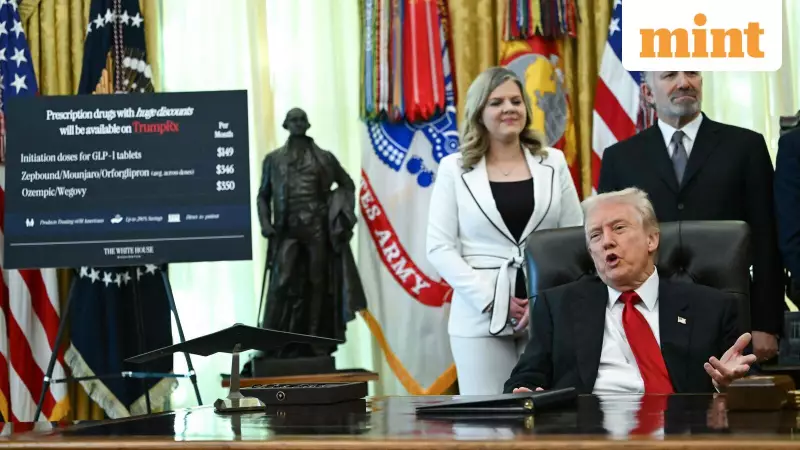
In a groundbreaking development for healthcare affordability, two pharmaceutical behemoths are taking unprecedented steps to make their blockbuster obesity treatments more accessible to millions of Americans. The move comes after significant political pressure and marks a potential turning point in prescription drug pricing.
The Price Reduction Breakthrough
Eli Lilly and Novo Nordisk, dominant players in the rapidly expanding weight-loss medication market, have confirmed substantial price cuts for their popular obesity drugs. This strategic shift follows direct engagement with former President Donald Trump's administration, signaling a triumph for patient advocacy and political intervention in healthcare costs.
What This Means for Patients
The cost reductions promise to deliver much-needed relief to Americans struggling with obesity-related conditions. These medications, which have shown remarkable effectiveness in weight management, were previously out of reach for many due to prohibitive pricing and insurance coverage limitations.
The new pricing structure represents one of the most significant voluntary drug price reductions in recent pharmaceutical history, potentially setting a precedent for other manufacturers facing similar pressure.
Market Impact and Industry Response
Industry analysts are closely watching how this decision will reshape the competitive landscape of the weight-loss drug market, valued at billions globally. The price adjustments could:
- Expand patient access to cutting-edge treatments
- Increase insurance coverage acceptance
- Accelerate market adoption rates
- Prompt similar moves from competitors
Political Dimensions and Future Implications
The successful negotiation highlights the growing influence of political pressure on pharmaceutical pricing strategies. This development comes amid ongoing national debates about healthcare affordability and the role of government in regulating drug costs.
"This agreement demonstrates that when political will aligns with patient needs, meaningful change in healthcare accessibility is possible," noted a healthcare policy expert familiar with the negotiations.
The pricing deal is expected to have ripple effects across the healthcare ecosystem, potentially influencing how future breakthrough medications are priced and distributed in the American market.






